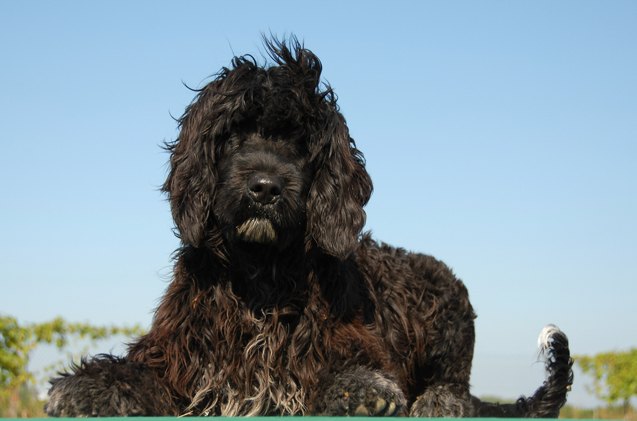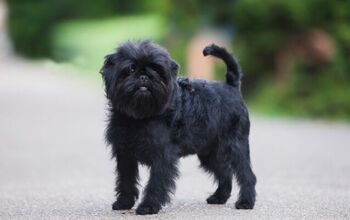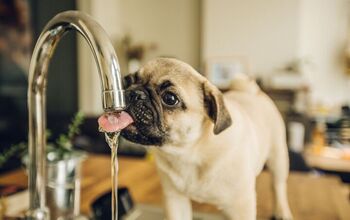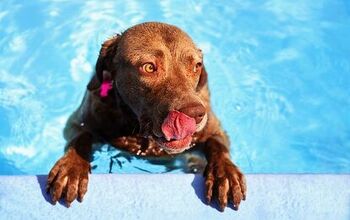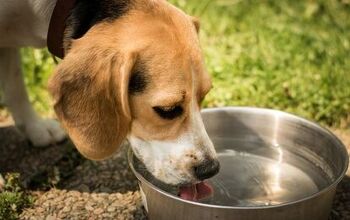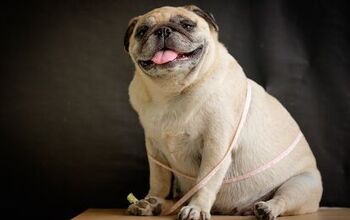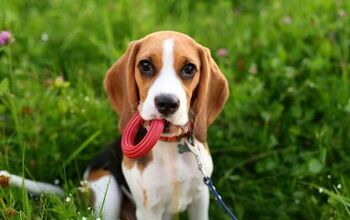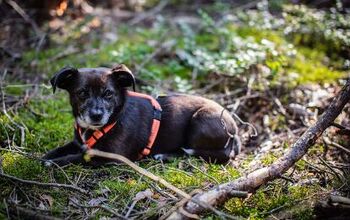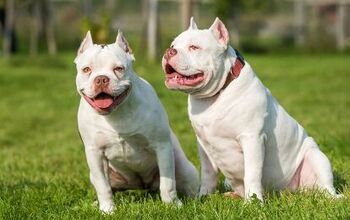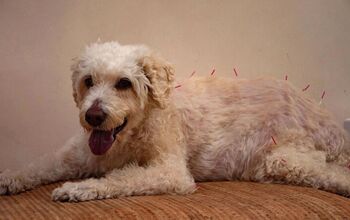Portuguese Water Dog


About Portuguese Water Dog
A breed made famous after taking its place in the White House, the Portuguese Water Dog is a favorite to presidents and average citizens alike.
If you let it, your Portuguese Water Dog will swim across the ocean with you, guard your boat, or lay on the floor at your feet. A hard working dog that is wonderful to own, this breed is the perfect companion for many families. If you have enough attention and care to dedicate to this affectionate dog, you may want to consider adding a Portuguese Water Dog to your household. Read on to find out if this breed is a good fit for your family.
A hard working dog that is wonderful to own, the Portuguese Water Dog is the perfect companion for many families.
Originating in Portugal, the Portuguese Water Dog was bred to help fisherman with water tasks. Not only did this dog catch fish, it also herded them! Since the dog was such a strong swimmer, it was also used send messages from one ship to another, as well as to guard the boats.
Although today they aren’t used as fisherman’s helpers anymore, Portuguese Water Dogs are excellent companion dogs and are often used for water training purposes. If you live on or spend lots of time near the water, the Portuguese Water Dog will flourish in this environment.
There are a few theories regarding the pedigree of the Portuguese Water Dog. One is that the breed evolved from the rugged Asian herding dogs of the Berbers. Another suggests that herding dogs left with the Goths, a series of German tribes. This dog was known as the German poodle or puddle-dog.
Both theories explain how the Poodle and the Portuguese Water Dog may have developed from the same ancient genetic pool. As well, the Irish Water Spaniel and Kerry Blue Terrier are believed to be descendants of the Portuguese Water Dog.
The Portuguese Water Dog was recognized by the AKC in 1983.
The Portuguese Water Dog needs the same nutrient sources that are similar to those found in the breeds native environment, as well as the proper balance of protein, carbohydrates, fatty acids, vitamins and minerals. Just a few of the foods this dog likes are fish and sweet potatoes.
An intelligent and trainable dog, the Portuguese Water Dog loves to please its owner.
An intelligent and trainable dog, the Portuguese Water Dog loves to please its owner. Start training as early as possible. This breed is eager to learn and will try its hardest to please you. You’ll find that positive reinforcement is the best method to train this breed, and you should praise and rewards freely. It won’t be long before your dog is happy and well-trained.
Male Portuguese Water Dogs weigh 40 to 55 pounds, while females weigh 35 to 50 pounds.
One thing you’ll notice right away about the Portuguese Water Dog is its amazing intelligence. Designed for water work, this breed has the skills and abilities that make them a force to reckon with – even on dry land!
A fun loving breed, the Portuguese Water Dog is a great dog for kids of all ages. As soon as you make them a member of your family, this dog becomes extremely loyal to you. It will be protective of your family, making for an excellent watchdog. Another quality that makes it a wonderful family pet is that it has an even temper.
To minimize excess barking, dominance struggles, and acting out in search of attention, the Portuguese Water Dog needs plenty of exercise.
The Portuguese Water Dog is an exceptionally healthy breed. If you take good care of your dog with exercise, regular preventative vet checkups, and feed your pooch a well-balanced and nutritious diet, your dog should live a long life.
One of the few issues to be aware of is hip dysplasia, which is common in this breed due to its size. This can lead to complications and moderate to severe lameness later in life. Another illness that is known to affect this breed is GM-1 Storage Disease. This lethal condition damages the nerves and ultimately leads to death. There is no way to screen puppies for this condition.
Portuguese Water Dogs have a life expectancy of 10 to 15 years.
Exercise is a necessity rather than a luxury with the Portuguese Water Dog. It was bred to work many a long hour working hard, and even though it may be a house pet, it still needs to get its exercise in. If you don’t provide your pooch with enough, your dog will use this energy toward destructive purposes. Besides, you’ll find that your Portuguese Water Dog is much happier when it gets the exercise it needs. Just a few of the exercise options include swimming, walking, and running. These dogs need at least an hour’s worth of exercise each day.
A fun loving breed, the Portuguese Water Dog is a great dog for kids of all ages.
The American Kennel Club says this about the breed: “Known for centuries along Portugal’s coast and prized for its strength, spirit and soundness, the Portuguese Water Dog is a loyal worker and companion. Medium-sized and robust, the breed possesses a waterproof coat and the ability to swim all day.”
The coat of the Portuguese Water Dog varies from one dog to the next. It ranges from wavy to curly to flat. In terms of color, some coats are black, some are brown, some are white and others are multicolored. Its hypoallergenic coats are made up of a single layer, making it a great breed for allergy sufferers. The Portuguese Water Dog does not generally shed, however regular brushing will prevent matting.
The Portuguese Water Dog puppy loves to chew. To minimize this bad habit, keep your puppy active and engaged as much as possible.
Photo credit: cynoclub/Shutterstock

Amy Tokic, Editor of PetGuide.com, is a passionate animal lover and proud pet parent of Oscar, a Shih Tzu/Chihuahua cross, and Zed, a Japanese Chin. Her love of animals began in kindergarten, when she brought her stuffed dog Snoopy into class with her every day. Now, she writes about her adventures in pet ownership and tirelessly researches products, news and health related issues she can share with other animal enthusiasts. In her free time, Amy loves perusing used book and record stores, obsessing over the latest pet products available and chasing squirrels with wild abandon (a habit attributed to spending too much time with her pooches).
More by Amy Tokic



